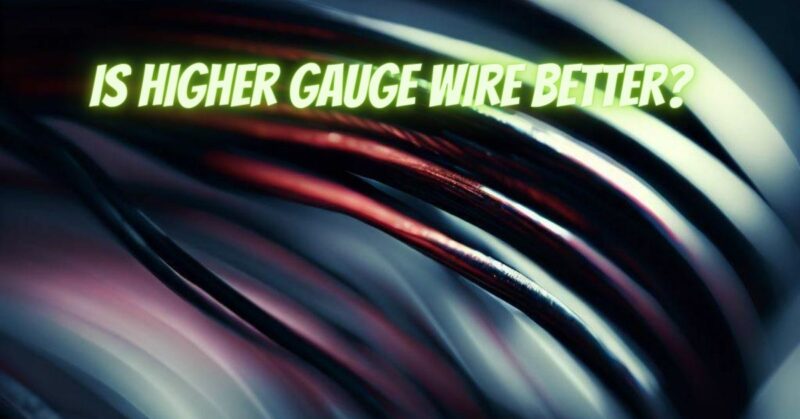The choice of speaker wire gauge is an important consideration when setting up an audio system. One common question that arises is whether higher gauge wire is better. In this article, we will explore the role of higher gauge speaker wire, its advantages, and the scenarios in which it is most suitable.
- Resistance and Signal Loss: Higher gauge speaker wire has a smaller diameter and, consequently, higher resistance compared to lower gauge wire. This increased resistance can lead to higher signal loss and potentially impact audio performance. In general, lower gauge wire offers lower resistance and is preferred for longer wire runs and applications that demand higher power delivery.
- Shorter Wire Runs and Moderate Power Requirements: In situations where wire runs are short and the power requirements of the speakers are moderate, higher gauge wire can perform adequately. For example, in small rooms or setups where speakers are positioned close to the amplifier or receiver, higher gauge wire can effectively carry the audio signal without significant signal loss or degradation.
- Flexibility and Ease of Installation: Higher gauge wire is typically more flexible and easier to work with compared to lower gauge wire. This makes it advantageous when dealing with complex installations, tight spaces, or situations that require frequent repositioning or adjustments. If your audio setup demands flexibility and ease of installation, higher gauge wire can be a practical choice.
- Cost-effectiveness and Budget Considerations: Higher gauge wire is often less expensive compared to lower gauge wire due to the reduced amount of copper used. If you have budget constraints or need to wire a large number of speakers, higher gauge wire can provide a cost-effective solution without compromising audio performance, particularly in setups where shorter wire runs and moderate power requirements are involved.
- Speaker Sensitivity and Power Handling: Consider the sensitivity and power handling capabilities of your speakers when selecting wire gauge. Higher gauge wire may not be suitable for speakers with lower sensitivity or higher power demands. In such cases, where optimal power delivery is critical, it is generally recommended to use lower gauge wire to minimize resistance and ensure efficient power transfer.
Conclusion:
The choice between higher gauge and lower gauge speaker wire depends on various factors, including wire length, power requirements, installation flexibility, budget considerations, and speaker sensitivity. Higher gauge wire can be suitable for shorter wire runs, moderate power requirements, and situations that demand flexibility and cost-effectiveness. However, for longer wire runs, speakers with lower sensitivity, or higher power demands, lower gauge wire is typically recommended to minimize resistance and ensure optimal audio performance. Assess your specific setup requirements and strike a balance between performance, practicality, and budget to make an informed decision regarding the most suitable speaker wire gauge for your audio system.


